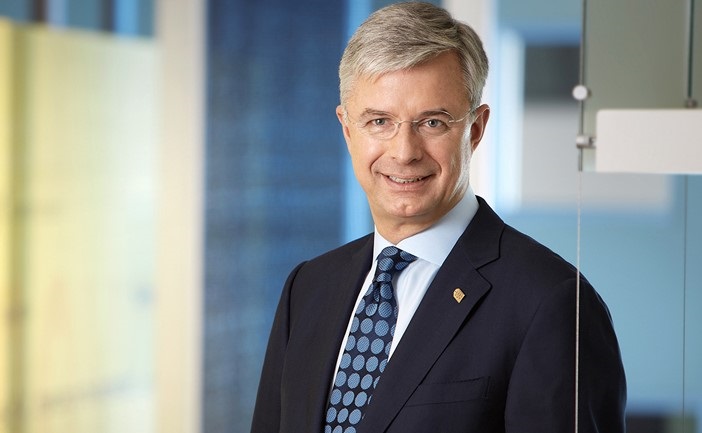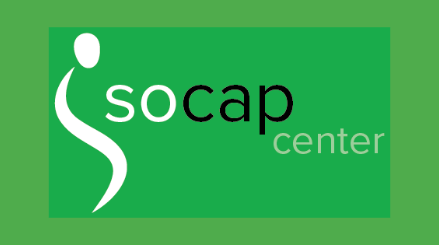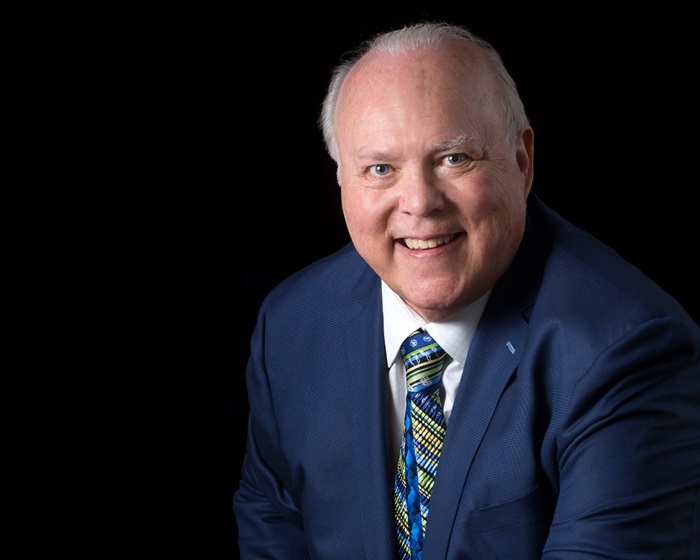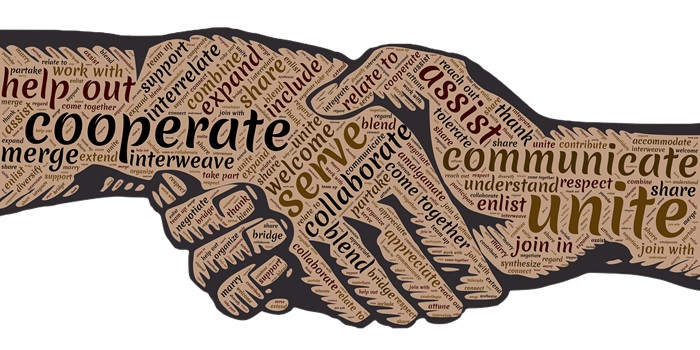Five CEOs Who Empower Others – and How!
By Chris Benguhe, RaeAnne Marsh and Elaine Pofeldt | January 4, 2024 10:57 am
Uplifting and strengthening people is an integral element of capitalism – and business done right.

These C-suite stars are making it their goal to help employees not just do their jobs more effectively but live better and more complete lives, even if it happens after their tenures at the company or beyond the scope of their work. (istock: wildpixel)
A new year is upon us, and that means a new opportunity to realize why empowerment so important and crucial to the Social Capital movement: Policies of empowerment in business operations shine a bright light on the tremendous power and potential of capitalism to improve the lives of the greatest number of people and, when done right, to make the world a better place.
At its heart, that is the saving grace of capitalism.
So let’s take a look at some incredible leaders who are fighting the good fight. These C-suite stars are making it their goal to help employees not just do their jobs more effectively but live better and more complete lives, even if it happens after their tenures at the company or beyond the scope of their work. Beyond this, many are helping customers to improve their lives and sense of self-worth and satisfaction well after the exchange of goods and services has ended. And they are bolstering the neighborhoods and communities in which they operate or interact directly and indirectly through the operations of the businesses and business model.
The five companies and their leaders honored this month showcase that power through their passion to improve and empower all those they interact with. So, as we all work to achieve happiness and prosperity — for ourselves, our families and friends, our nation and our world — these heroic leaders are creating a path forward through many challenges, from inflation to military strife. And we hope they will also inspire others to follow suit.
At a time when unfortunate world events have shined a light on powerful forces that do all they can to take freedom and power away from people all over the world, we are blessed to live in a nation founded on ideals to empower others, to strengthen others, and to support and validate the value of humanity.
There is no better time to highlight and applaud these companies and implore others to follow suit. We ask our readers to take a good look at them and build on their examples as they continue to embrace the values of the Social Capital movement in their own ways.
Ed Bastian, Delta Air Lines
Ed Bastian, CEO of Delta Air Lines, brough the airline back to life, with integrity and utmost respect for the people who depend on the airline — customers, employees and the communities it serves — as the foundation.
Ed believes running the airline is “the ultimate team sport.” To ensure that the airline benefits from input from everyone on the team, he fosters a work environment where, at every level of the company, team members’ voices and concerns are heard in a real and practical way, and everyone feels empowered to speak up.
“Empowering our people involves constantly listening to them to understand their concerns and make decisions based on their feedback,” says Ed. “With 100,000 employees worldwide, you can imagine how hard it can be to hear from everyone. It’s especially complicated when you have a mobile workforce that spends its time on airplanes, at the airports, in maintenance hangars and the many other places our people serve our customers.”
The strategy that works is to seek feedback in many ways–through mobile devices and via virtual Town Halls and regular employee surveys, to name a few.
The company also works to foster an environment that makes employees feel empowered to express their feedback directly to their leaders.
“One of my favorites is a behind-the-scenes employee experience called VELVET, where our frontline people travel from across the globe to connect with their colleagues and leaders,” Ed relates. “During VELVET, our most senior leaders at the company, including myself, have the opportunity to hear direct feedback from our teams. We had our first VELVET session 17 years ago and it’s become an integral part of our culture since.”
Of course, none of this would work if Ed and his senior leadership team didn’t listen and make decisions based on the ideas and feedback employees share.
“We have a philosophy at Delta to ‘listen, respond, and then listen again,’ to make sure we never stop improving,” says Ed. “For me, personally, this means spending time outside of my office — in the airport, on our planes, at facilities like our Reservations and Customer Care Centers and Technical Operations Centers, and so on —to hear from our people and our customers firsthand. That helps us understand what’s working and how we can do better.”
This emphasis on communication is the foundation of the trust Ed places in Delta’s people. “On every Delta flight, a group of employees operates a multi-million-dollar aircraft and takes responsibility for the health and safety of our customers in the air with no direct oversight from management,” he points out. “It’s an extraordinary level of trust that you don’t see in most industries, but for us it’s a way of life.”
The company makes many investments in supporting its team members so they feel valued. One of the most powerful empowering practices for Delta is its profit-sharing — a program that it deployed even in 2021, when the company was just barely recovering from the existential challenges the pandemic had brought to the travel industry the previous two years. Delta breaks the industry standard of paying flight attendants only for time in the air, instead rewarding them for the actual start of their shifts. It’s all part of Ed’s idea that his people are truly business partners in his success as CEO.
“We believe strongly in the ‘virtuous circle’: If you take care of your people, they will take care of the customers, whose business and loyalty allows you to reward your investors and other stakeholders,” Ed has said. “The rest takes care of itself.”
It’s a powerful reminder of how the principle of empowerment improves the lives of all and builds stronger businesses better than short-term, bottom-line thinking.
That attitude and awareness has been a big part of Delta’s response to racial justice and inequity issues. And in 2020, with the issue raised to even higher profile, Ed created and instituted a detailed analysis of the racial breakdown of Delta’s employee base and corresponding leadership percentage rather than simply sending a memo. Then, after determining a proven inequity in its leadership ranks, Delta created a carefully considered and practical process for improvement. As 2023 came to a close, Delta reported that it had continued to increase representation of women and people of color in roles across the country in its Close the Gap strategy, which tracks the gap between the diversity of hourly wage earners, or frontline talent, and leadership. The goal is equitable access to career growth at every level of the company’s workforce.
The company’s response to the global reckoning over historic racial inequality and injustice that garnered extensive media coverage in 2020 has been a serious, ongoing look at the gap between the diversity of its frontline talent and its leadership team — a focus Ed has championed. “We noticed a large disparity between the two groups and realized we needed to make a concerted effort to close those gaps in order to become a more equitable company,” he explains.
To rectify that empirically proven predicament, Delta put into place remedies such as eliminating four-year-degree requirements for job applicants and teaming up with OneTen to create 1 million jobs for Black Americans over the next 10 years. The company also created a new apprenticeship program to enable frontline people to access higher-earning career opportunities. The purpose and practice of all these programs centers on hiring, developing and promoting people with the relevant skills and experience for open positions.
“It’s important to ensure we’re not leaving talent behind due to inconsequential barriers,” Ed has said. “This skills-first program is essential in ensuring our people feel empowered enough to continue to grow with us as we move forward.”
The inspiration for all these empowering ideas, says Ed, all goes back to his mom. “I was one of nine kids, and she taught us the importance of character, the importance of being true to one’s word and taking good care of each other,” he relates. “And she was a role model in our family for doing that. As a result of that, the confidence that she instilled in me that by doing things the right way, by looking where you can bring value, will create value for you in ways you don’t even begin to understand, was something she always taught us at a very young age. I really attribute that to her.”
His mother’s influence also underlies his character as a leader who exemplifies authenticity, another Social Capital ideal we honored him for in our feature “Authentic CEOs: Antidote to the Counterfeit Culture.” It’s a beautiful legacy of empowerment.
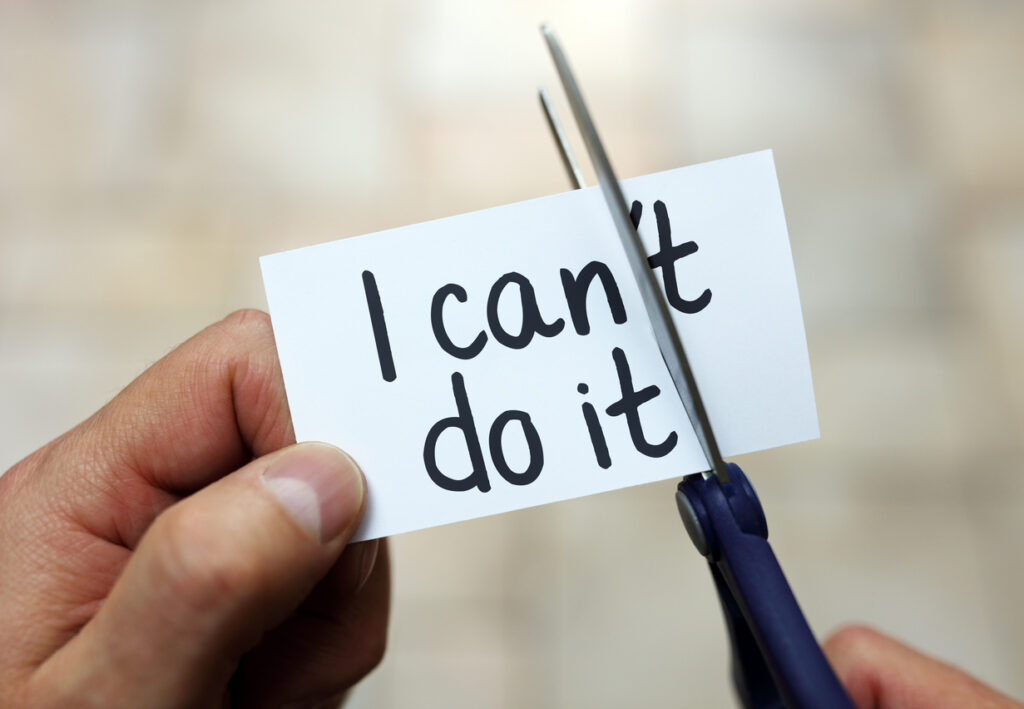
For Garry Ridge of WD-40 Company, empowerment doesn’t stand apart but is woven into a business’s culture. (istock: BrianAJackson)
Garry Ridge, WD-40 Company
“In the four decades that the concept of ‘employee empowerment’ has captured the imagination of C-suite leaders, business school professors, consultants and other thought leaders, I’ve watched them struggle with their attempts to define it and then apply it in real life. On the surface — and in theory — it has almost universally been accepted as a good idea,” says Garry Ridge, former chairman and CEO of WD-40 Company and remaining as company emeritus, whom we recently honored in in our feature “Authentic CEOs: Antidote to the Counterfeit Culture.” After all, he points out, who knows how to do the job better than the person responsible for performing it? Who is more likely to be keeping up with the newest best practices, techniques and discoveries associated with the role than the person responsible for its successful performance?
“Of course it makes sense to unleash that person to exercise personal and professional agency to get the job done, correctly, in real time, without having to send it up the power chain for approval. But,” Garry continues, “I could never shake the feeling that the term ‘employee empowerment’ has a provisional feeling to it: ‘Let’s see how far we can stick with this employee empowerment idea before it stops working.’ ‘Employee empowerment is a great idea, but let’s face it, we have to keep tabs on the rank-and-file. We have loss mitigation to think about too, you know.’ ‘Employee empowerment was all the rage in the last regime. But I’m here now, and I just heard of this even better idea. Let’s try this instead.’”
His point is that, where there is employee empowerment installed as a new management approach, the possibility of the opposite is always lurking: employee disempowerment — or centralized command/control. This, in turn, leads to employee disengagement. The risk of potential disengagement, not to mention loss of revenue, reputation and stakeholder confidence, has a way of keeping employee empowerment constrained by sharply defined rules, regulations and unwritten expectations to run it by the boss anyway “just to be on the safe side.”
For Garry, empowerment doesn’t stand apart but is woven into a business’s culture. Building such a culture starts with being committed to the principle “it’s all about the people.”
“When I was CEO of WD-40 Company, I observed that true employee empowerment was baked into the culture in everything we did and all the decisions we made,” Garry relates. He emphasizes that it wasn’t a matter of unleashing employees to do what they thought best, noting that they weren’t leashed to begin with. He led from a belief that it was a matter of infusing within “our tribe” a thorough, shared understanding of the company’s values, and then supporting them in making their own decisions according to that set of values. “Notice I didn’t say allowing them. They don’t need to be empowered to act by our permission.” Rather, he believes they deserve to be given everything they need to be successful in the implementation of their decisions, and that doing so is the role of their leaders — who, he notes, “are called ‘coaches’ within the WD-40 Company, not ‘managers,’ for obvious reasons.”
Says Garry, “Now that I’ve refired my career from the honor of having been part of the WD-40 Company for so many deeply rewarding years to now serving as an executive coach, I’m excited to be given the opportunity to help other leaders duplicate this positive cultural experience within their own companies.” He shares two core pieces of advice:
The first is to base cultural performance expectations and norms on a hierarchical set of values. “If you and your company believe in your values, and you understand which ones take precedence over the others, you have a wonderful set of guardrails to keep your tribe members safe and directed as they move forward toward the future of your enterprise. It is within those guardrails that your people will be able to confidently make decisions and take actions knowing that they are performing according to what’s most important to your company and culture,” Garry explains.
The second is to embrace, share and even celebrate the “learning moments” as they arise, he says, using a term enshrined as the name of his company — The Learning Moment. Noting that not all decisions or actions will turn out as originally envisioned, no matter how faithfully people stay true to the values that helped guide their choices, he emphasizes that almost every experience, experiment and outcome — for good or ill — brings with it at least one lesson for the individuals to share with their colleagues, without fear of reprisal or shame. Says Garry, “The confidence that we can try, succeed, fail, learn, grow and build on what we learn day to day within the safety of a values-based culture among colleagues and coaches who support us and want only the best for the business, themselves, and each other — that is true employee empowerment.”
Garry’s proven adherence to this in his leadership of WD-40 Company is what we first recognized him for, and we name him now a Dave Alexander Center for Social Capital honoree for helping other business leaders create this environment in their companies.
Bob Chapman, Barry-Wehmiller Companies, Inc.
Bob Chapman has been a pioneer in applying to business the qualities we identify under the banner of Social Capital, and we first met and honored him a few years ago when we were in the nascent stages of building our network of Social Capital CEOs that would eventually become the backbone of the Dave Alexander Center for Social Capital.
Bob is chairman and CEO of Barry-Wehmiller, a capital equipment and engineering consulting firm that owns a whole lot of companies and employs nearly 12,000 team members worldwide. Impressive to be sure, but it is his unusual management philosophy that made him a standout to us: He believes the purpose of a successful company is to make its employees successful.
“How you think is how you lead,” he says. “If you think of the people who work for you as employees who perform functions for your success—as accountants or engineers, assemblers or machine operators—they likely don’t feel very empowered when treated as functions, numbers on a spreadsheet, head count. However, when you view each of them as the human beings that they are—as someone’s precious child whom you are helping to become all they were meant to be, empowering them becomes easy because they feel cared for and valued and they want to contribute their gifts to the shared purpose.”
Assuming control of his family’s company unexpectedly upon the sudden death of his father, Bob began as CEO leading per the traditional model he had been taught at the University of Michigan business school: create shareholder value, manage people, focus on profit. “I did that for many years but, eventually, it felt like something was missing,” Bob recalls.
He realized he had already turned around what had been a struggling bottle washer business when he inherited it but, while reflecting on his success, he had an epiphany: He was not in business for the sake of the company, but the company was in business for the sake of the lives involved with it, and not just employees but the community in which a particular plant is located.
That’s one of the reasons why, when Bob acquires another company, he doesn’t milk it for the assets and toss out the leavings; he incorporates it into the parent company and welcomes every employee with the same incredible philosophy.
In fact, Bob has grown what was a single-market company into a far-flung corrugating, packaging and paper converting equipment and engineering consulting conglomerate of more than 115 acquired companies worldwide that can boast a continuing pattern of compound growth in both revenue and share value. He has accomplished this through strategic acquisition and operational expertise while never deviating from the commitment he expresses to “the lives under my care.”
And he empowers those lives — those people — through what he calls “responsible freedom, a key attribute of his Truly Human Leadership, which allows team members to exercise personal choice about their work. “Because our team members have been trusted to make decisions about how the work gets done, they’re inspired to contribute their unique gifts and talents and perform their roles in service of others and our shared goals,” Bob shares. He believes this promotes an environment of empowerment and accountability.
Says Bob, “When you see others as someone’s son or daughter, instead of dehumanizing them by thinking of them as an instrument for your business’ success, you turn the traditional paradigm on its head. Then, empowerment is second nature, because you care for them and you work to provide the tools needed for them to succeed.”
A key element in all this is making sure that, at every level of the company, everyone’s voice and concerns are heard in a real and practical way. And that requires, first, teaching people how to listen. “In our society today, we listen to talk, we don’t listen to hear,” Bob points out. “Throughout Barry-Wehmiller, we teach our team members how to listen with empathy, where one actually hears the other person’s words and feelings. Empathetic listening allows us to see things from others’ perspectives and helps them feel heard and seen.” Feedback from team members who take the company’s empathetic listening course has been about not just how it impacts their relationships with their fellow team members, but how it affects their relationship with their families – their spouse, their children. “Listening with empathy helps those around you feel like they matter and creates deeper and more meaningful relationships.”
What could be more empowering than that?

“I think the bravery to take a risk floating a new idea comes from a culture of embracing a learner’s mindset,” says Austen Allred of BloomTech. (istock: IvelinRadkov)
Austen Allred, BloomTech
Austen Allred revolutionized the way schools should be run by providing an education that is free until participants get a job after graduation. BloomTech education with $0 tuition up front is but one of several pricing options BloomTech has developed so that learners can choose a tuition payment option that works for them. The result is nothing less than life-changing for not just that student but for the student’s entire family, creating the potential for generational economic change in communities everywhere across America. Talk about empowerment.
“Talent is distributed across races, ethnicities, abilities, gender identities, income and countless other factors — and I launched BloomTech to make the opportunity to pursue tech jobs more accessible to people of all backgrounds,” Austen proudly declares. His words and actions perfectly epitomize the Social Capital principle of empowerment at every level.
“The traditional risk equation of education is deeply flawed,” Allred declares. “It places an overwhelming burden on the individual — not the educators. I co-founded Lambda School [now BloomTech] with the underlying hypothesis that if we eliminate risk and align the incentives of students and schools on a large enough scale, we can democratize access to career and income mobility.”
Austen sincerely believes in and is dedicated to the value and the empowerment of human worth and potential — and the connection between that and creating capitalistic solutions to recognize and fuel it.
And for Austen, that authentic appreciation and value of humanity doesn’t apply just to students but to his employees as well.
“Along those lines, empowerment is working in a company where you don’t have to pretend to be something you’re not,” says Austen. “You can bring your whole self to work. The great thing is that every aspect of your identity can be an incredible resource. Our employees’ professional and personal experiences give rise to ideas that can help the company and advance our mission of creating a lower-risk, direct path to higher income.”
When you empower students to learn new skills and connect them to opportunity, they change not just their own lives but the lives of so many others, becoming living, shining advertisements for the product they are the result of. When you empower employees in the same way, they become constructive fire starters for steady growth and sustainable, dependable innovation.
“We also reinforce a culture of incremental improvement,” explains Allred. “Companies that succeed long-term can’t rely on finding ‘the big thing’ that will cement their standing in the market. Rather, we constantly seek ways to make our work 1% better.”
His “all hands on deck” approach to authentically inviting suggestions for improvements from employees at every level in the company has resulted in incredible ideas and dynamic change coming from the ground up.
“Similarly, I believe that great ideas aren’t limited to certain employees or roles,” confirms Austen. “That’s one reason why I work every day to foster a culture where anyone, regardless of their title, time with the company, background or any other factor, can contribute in meaningful ways. That’s what empowerment means to me.”
And it all comes back full circle to Austen’s true educator mentality. He sees himself, his employees and his students all as potential change agents who just need the right support and a safe space to realize that potential.
“I think the bravery to take a risk floating a new idea comes from a culture of embracing a learner’s mindset,” says Austen. “This relieves the pressure to always be right, which is toxic to innovation.”
That circle of learning, of growing and of creating positive change, leads right back to BloomTech’s amazing devotion to and success with its students.
“Ultimately, empowering people within BloomTech enables us to empower our learners,” explains Austen. “Everyone shows up every day to ensure more people have the skills to pursue a better job and a stronger financial future — and, potentially, the power to disrupt generational patterns of exclusion. Working toward this goal together means that every person within BloomTech has played a role in improving our learners’ lives.”
BloomTech exists because “there was no mechanism to help people know their human capital worth,” Austen explains. “It seems like such a simple concept for a school to be responsible for graduating educated, capable, and empowered students who know their worth — but it is now a revolutionary idea. Higher education will never be the same.”
Damien Huang, Cotopaxi
If you’re looking for a company that truly believes in empowerment, Cotopaxi is a shining example. That philosophy is one that founder and former CEO Davis Smith championed and new CEO Damien Huang embraces.
“Empowered employees bring their full selves to work, and feel able to contribute the best of their abilities,” says Damien. “They recognize how the work they are doing supports their peers, their team and the company at large. Our culture strives to foster clear communication and active feedback within our teams, so employees understand organizational goals and their role in achieving them. They have well-defined decision-making authority and autonomy within their sphere of expertise.”
Another foundation of Cotopaxi’s approach to empowerment is giving all employees access to the information and people they need to do their work and make informed decisions, Damien adds. Beyond this, the company fosters empowerment by providing training and growth opportunities “so there is always a growth mindset in how our llamas (what we call our team members) are thinking about their careers and opportunities at Cotopaxi,” he says.
Cotopaxi has put many systems in place to make sure everyone’s voice and concerns are truly heard and considered in decision making.
“Cotopaxi is in many ways defined by our culture and our communication with our teams,” Damien says. “As a remote organization, we have to be very intentional about how we communicate with each other, how we relay goals and objectives, and, in turn, how we ensure we hear from all parts of the company about how things are going. Cultivating this expectation of open, honest and productive communication is a constant focus. We believe that the best solutions and ideas come from those who are closest to the opportunity. Therefore, we have tried to build a culture in which everyone feels empowered to raise a hand and contribute.”
Tech tools to support employee engagement are a foundation of this. So are regular conversations held with the whole company and various levels of leadership about what is happening. “The tools we have support everything from identifying a strategic or operational problem, to expressing a concern about work experience, and importantly, recognizing and celebrating individuals across the organization for their contributions,” Damien says.
These steps are the latest steps forward in a historical companywide approach to people built on establishing a flourishing, democratized and engaged internal society that is scalable — both within the company and beyond, in society. As a B Corporation, the company has scored among the Best Companies in the World for its governance.
Former CEO and founder Davis Smith grew up in Latin America and spent a lot of time exploring and camping in Cotopaxi National Park. There, he developed a deep respect for the strong, hard-working local people of the Andes, and an equally meaningful concern for the extreme poverty they endured.
After moving to the United States and getting his academic degrees in business and international studies, he founded several successful businesses but wanted to make more of a difference. So, he combined his love of travel with a poverty-fighting business model. The result was Cotopaxi — where each customer’s purchase in one way or another supports those living in the world’s poorest regions.
“As lovers of the outdoors, we obviously care deeply about the environment, but our passion really lies in helping people,” Davis has explained. “I saw poverty that most in the developed world don’t even understand exists and felt I had a responsibility to find a way to help. I was no smarter, better or more deserving than them. I was lucky. Our mission is to not only do good as a brand, but to inspire others to join us along the way. We try to inject our mission of helping people into every aspect of our business.”
Starting what is now a global company, Davis was especially sensitive to the needs of people in Latin America due to his early years growing up there, and the way he operates his company underlines his awareness that “what’s needed in one community is not what’s needed in another.”
The foundation of Cotopaxi’s efforts in lifting people out of poverty, Davis has explained, is “asking them what they need and how we can help them” — in every factory and community Cotopaxi works in.
Empowerment is a key foundation of the company’s operations.
“While Cotopaxi remains a privately held company led by a board of governors and C-suite executives, employees can elevate and help resolve issues or opportunities that relate to any aspect of our company,” Davis has explained. “We believe in the principles of Radical Candor — caring deeply and being direct, which encourages employees to speak freely & truthfully.”
Functionally, Cotopaxi has an anonymous employee survey that allows any employee to share anonymous feedback, and it holds a monthly “Allamas” (all employee) meeting through which senior leadership updates employees on the latest company performance and opens the floor for employees to ask anything from their senior leaders. To further empower the employees, there are employee-led impact committees and includes two employee board seats on the Cotopaxi Foundation, the environmental committee, diversity and inclusion committee, and impact ambassadors.
We have frequently honored Davis over the past two years as we were building our network of Social Capital CEOs that became the backbone of the Dave Alexander Center for Social Capital. Now Huang has taken the baton, and we are eager to see how he builds upon Cotopaxi’s strong foundation of empowerment.

